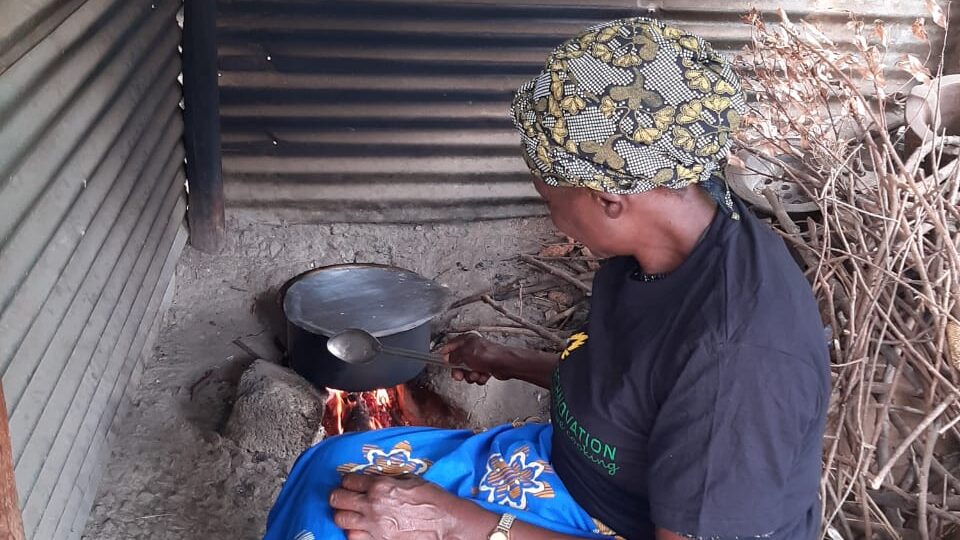Women’s Leadership is Critical for Clean Cooking
 Concepta Ojwang is the founder of Keyo Technovation, a climate-tech social enterprise that manufactures and distributes efficient and affordable cookstoves to underserved markets in western Kenya. She helps Kenyan women and youth transition to sustainable energy by providing clean cooking solutions as well as business and investment services.
Concepta Ojwang is the founder of Keyo Technovation, a climate-tech social enterprise that manufactures and distributes efficient and affordable cookstoves to underserved markets in western Kenya. She helps Kenyan women and youth transition to sustainable energy by providing clean cooking solutions as well as business and investment services.
CCA spoke to Ojwanga about women’s unique role in supporting the transition to clean cooking.
This story is part of a series showcasing women leaders in the clean cooking sector.
“When we empower women, we empower the whole community.”
This guiding principle, as well as her personal experiences, were the driving forces behind Concepta Ojwang’s decision to start her own clean cooking company, Keyo Technovation.
“Growing up in rural western Kenya, cooking on an open fire was the norm,” Ojwang said. “Every household in my community used firewood for cooking; very few could afford charcoal. One day, I accidentally placed wet wood in the fire while cooking. The emanating smoke choked me, and I developed a respiratory tract infection. I finally understood my mother’s daily plight and wanted to change that. So, when I got the opportunity, I formed Keyo Technovation.”
Ojwang’s company has now helped women from more than 200 households adopt clean cooking solutions. But her leadership journey was far from easy. For one thing, if not for her mother’s resolve, Ojwang might never have gained a complete education. “Sending girls to school is not a priority in rural Kenya as they are expected to help with house chores, including collecting firewood,” she said. “So, my mother sent us to school secretly, sometimes once a week or in shifts. My sisters and I collected firewood from the bung kosano forest, which still exists today but with significantly fewer trees. Only now can we look back and laugh at how we suffered carrying heavy wood on our heads.”

Still, Ojwang persevered, eventually making it to university, where she was stunned to discover easy, safe, and efficient ways of cooking food: “I saw an electric cooker preparing meals in less than an hour, yet back home, we took over two hours to cook. This made me want to specialize in reducing fuel costs and transitioning to clean cooking.” Thanks to a scholarship, Ojwang was able to pursue a master’s in energy economics, which covered everything from project management to the economics of climate change. At age 29, she launched her own clean cooking company.
Ojwang quickly realized that simply making cleaner technologies available was not enough to change how people cook. “I faced a lot of resistance from older generations that were used to traditional ways of cooking and resisted new technologies,” she said. “In addition, accessing finance has always been a challenge, which has made scaling our business difficult.”
To address these challenges, Ojwang works closely with the women and youths who are Keyo Technovation’s main sales agents and manufacturers. She believes that, just as women are the primary cooks in most households, the solutions to cleaner energy for cooking must also come from women. “Our society still believes that cooking is the work of women and girls, risking our health and safety,” Ojwang said. “Girls fare much poorer than boys in school as they must return early to collect firewood. Since we understand the adverse effects of indoor air pollution, we need to offer a solution to our fellow women so that our children benefit from clean cooking.”
Despite the clean cooking sector growing to include many start-ups and international firms, Ojwang firmly believes that national governments are responsible for increasing clean cooking access for informal settlement residents and others who cannot afford it. “Governments can subsidize clean fuel costs to encourage rural and low-income households to move away from polluting stoves, and also offer low-interest loans for private investors to provide affordable clean energy,” she said. “Specifically, Ojwang advocates for women’s financial needs to be incorporated into designing solutions. “Financial institutions must be aware of women’s needs and introduce incentives to provide appropriate, accessible, and flexible financial products and services – including, for example, fair interest rates and affordable insurance,” she said.
With the right support and information, Ojwang is confident that women can be powerful agents of change. “Women are ideally placed to lead and support the delivery of energy solutions, especially given their role as primary energy users and their social networks,” she said. “Women manage their households and, in that role, can play powerful roles in influencing energy purchase and use decisions in their homes. At the same time, women can make specific contributions to greenhouse gas mitigation: they are often more willing than men to change their behavior to save energy and purchase low-carbon-emitting products.”
